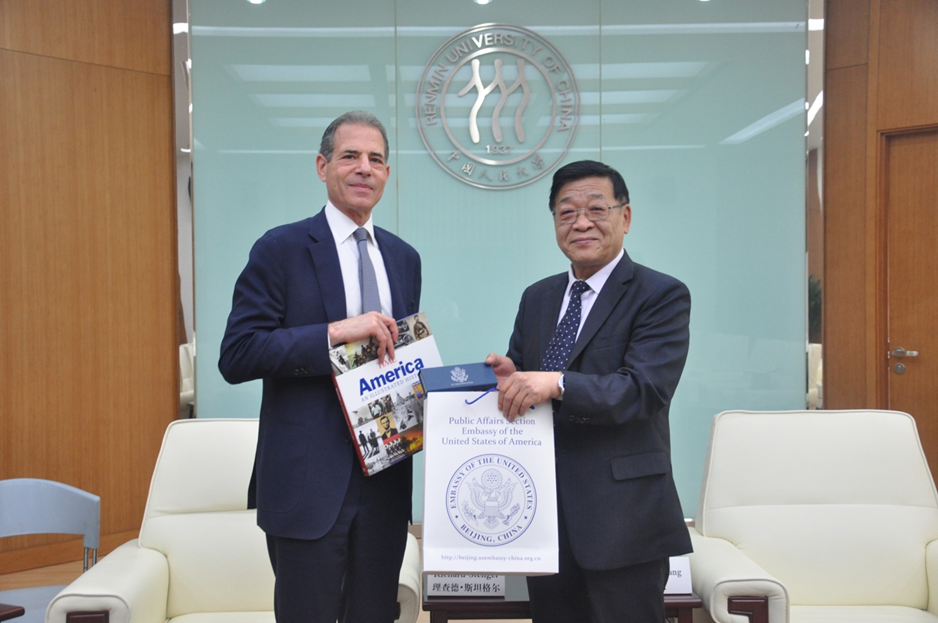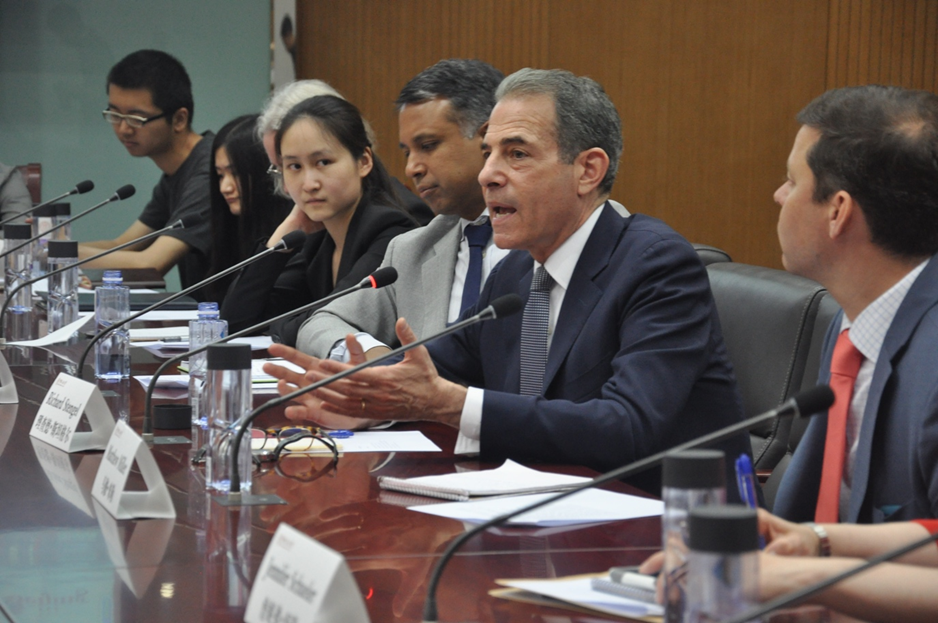Richard Stengel, the American Undersecretary of State for Public Diplomacy and Public Affairs, discussed the state of journalism and the progress in Sino-American exchanges with faculty and students of the journalism school on June 8.
The journalism school was represented by the associate secretary of the Party Committee, Zhang Huifeng, Professor and assistant to the dean Zhong Xin, Associate Professor Li Qin, and eighteen students. Also attending were Zhang Damiao of RUC’s international office, and Lu Keli, Associate Professor in the School of Marxism Studies.
Exchanges between China and the United States in a number of fields including education will be strengthened, Stengel announced based on the outcome of high-level talks that were held the previous days in Beijing. He said the agreed-upon initiatives would help to establish better relationships between journalism schools in the two countries adding that he would also personally be willing to further these relationships.

After talking about the results of the 8th round of the Sino-US Strategy and Economy Dialogue and the 7th High Level Cultural Exchange Consultations, Stengel gave his view on developments in new media and education.
In a friendly atmosphere, Stengel and his entourage then discussed with faculty and students such topics as public diplomacy, journalism education, trends in media, and China-US relations.
The participants exchanged ideas on the influence of new media and the job prospects of journalism students. They agreed that despite employment trends social demand for news would remain and that journalists should continue to adhere to the field’s core principles.
Stengel asked students where they get their international news from. Shi Futian, who majors in international journalism, said he gets news from new media. For example, when Hillary Clinton won a primary election, he obtained a message through new media almost immediately.
Zhao Chongrui, another student of international journalism, also said he gets his news from new media. He added that it must be very hard for the traditional media to accurately reflect the current complex exchanges and cooperation on different levels and in different areas between China and the US.
Stengel, a former managing editor of Time magazine, talked about his own work experience as a journalist and said that these days new media are definitely the most important channel of communication. But he added that, notwithstanding the challenge from new media, the traditional media will continue to evolve and still be around for a long time.

Ye Zi, a student of international journalism who wrote her undergraduate thesis on the reporting in Time, discussed with Stengel issues related to news writing skills.
Later that day Stengel tweeted: “Great conversation on new media & old values with journalism students at Renmin University. They have bright futures.”



